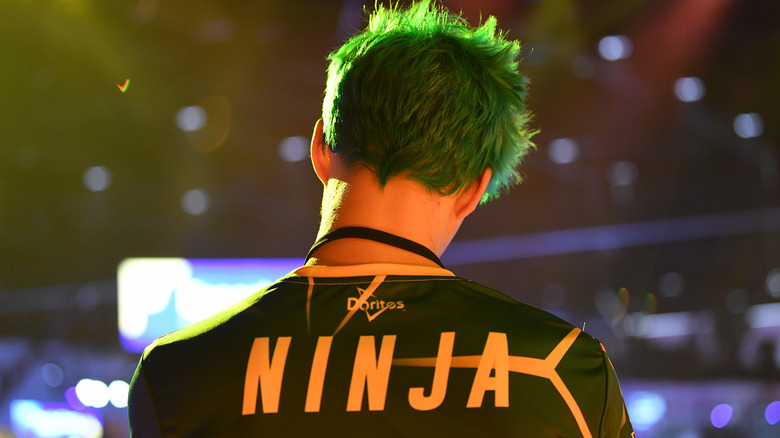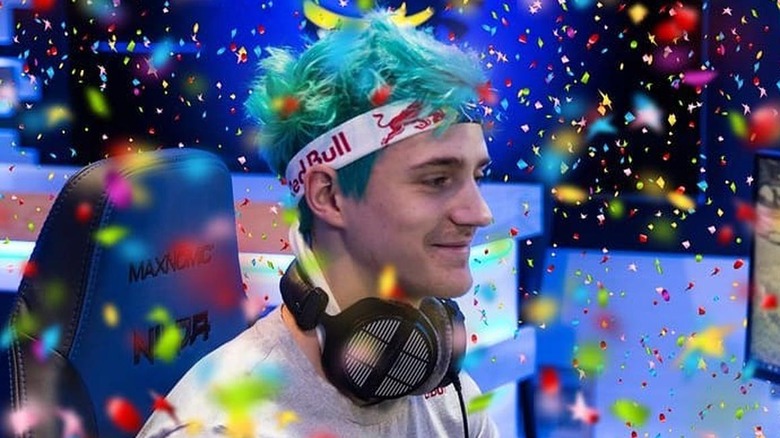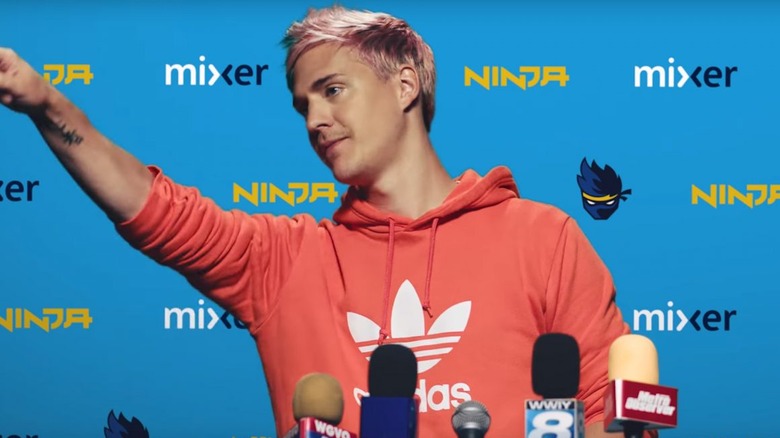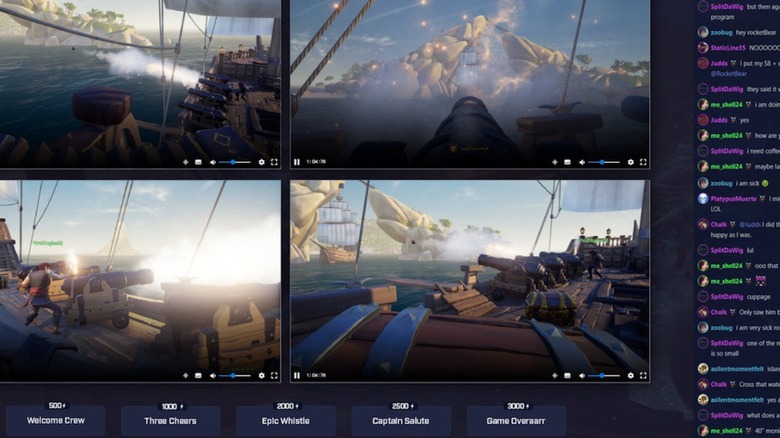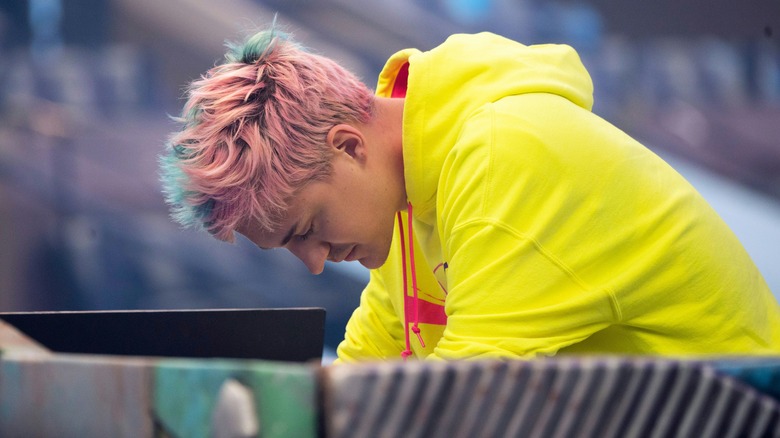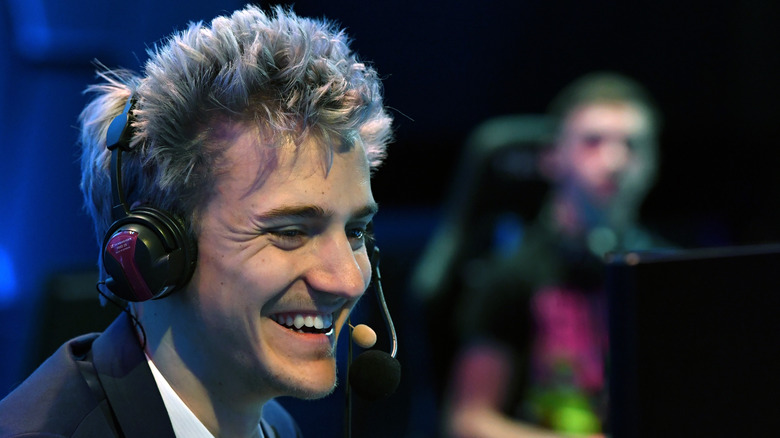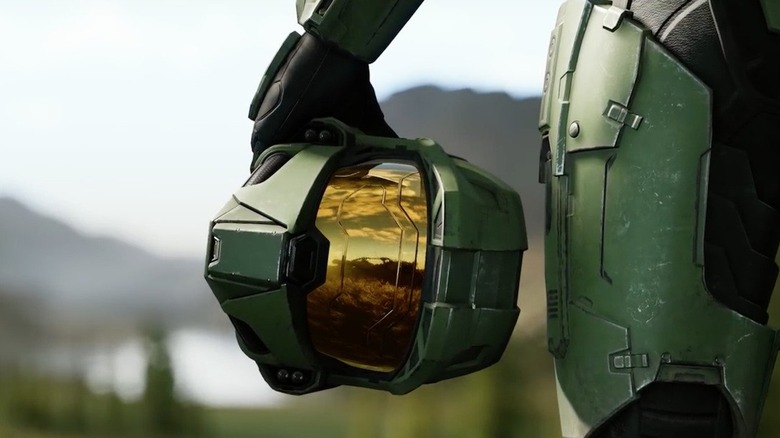The Real Reason Ninja Is Leaving Twitch
Tyler "Ninja" Blevins, the biggest name in Fortnite and one of Twitch's brightest stars, has left the platform to stream full-time on Mixer. Ninja broke the news via Twitter on August 1, 2019, overshadowing the start of Fortnite's tenth season. Mixer, Microsoft's fledgling streaming service, launched as Beam in 2016 before being rebranded the following year. The Ninja exclusivity deal, described by the streamer as "the next chapter," marks a major coup for the platform, which has struggled to match the numbers of reigning industry champions Twitch and YouTube.
Like Twitch, Mixer features primarily gaming-themed channels helmed by amateur streamers and professional players. As a Microsoft product, Mixer includes both Xbox One and Windows 10 dashboard integration, making it more appealing to individuals who stream on those platforms. Despite arriving late to the streaming party, Mixer has shown consistent growth since its rebranding two years ago. "The total number of hours that viewers have spent watching content each month has grown nearly 17x — that's based on an average growth rate of more than 12% each month for the past 25 months," reported general manager Chad Gibson. The platform has clear potential, but what really prompted Ninja's move?
Show me the money
While some may dismiss Blevins as a glorified gamer, he's spent eight years building a business empire. His wife, Jessica Blevins, has managed his business throughout his career, and the operation has since expanded to include the Loaded management group and Loeb & Loeb law firm. Like any astute businessperson, Blevins knows when to follow the money. While neither party has disclosed the details of his deal with Microsoft, you can bet it came with a sizable signing bonus to offset the hundreds of thousands of dollars he raked in each month streaming on Twitch.
Mixer offers a greater earning potential, provided Blevins can attract a similar number of views. Twitch partners earn a cut for both the subscribers they gain and ad revenue generated by non-subscribed viewers. Mixer uses a similar model but with some key differences. Though they don't run third party ads, the platform still pays streamers a CPM (cost per thousand impressions) rate. Mixer also features Sparks, a virtual currency that converts into real money when viewers donate it to their favorite streamers. Viewers earn Sparks just by watching streams, with multipliers offered to Pro accounts and channel subscribers.
The face of Mixer
Ninja set multiple records during his time with Twitch. He became the first Twitch streamer to reach 10 million followers; a few months prior, rapper Drake joined him for a Fortnite stream that pulled in 628,000 viewers, setting the record at the time for an individual account. Despite this success, Ninja's Twitch popularity may have been on the decline. "Twitch has a number of top streamers who are generating more hours watched than Ninja each month as highlighted in our latest report, so [Twitch] will be just fine," Chase, the former Twitch communications head, told IGN.
Moving to Mixer allows Ninja to reclaim center stage, becoming the face of the growing company. Rather than playing by Twitch's rules and expectations, his new position allows him to help build a burgeoning platform, influencing its development and identity through streams and events. This growth will provide much-needed competition in a market dominated by a single, major player. Similar to the rise of the Epic Games Store, Mixer will bring accountability and new opportunities to the table should it take off. Ninja and his channel, which attracted over 100,000 followers within five hours, are poised to lead the charge.
A stronger connection with the community
Since the announcement, Ninja has emphasized the opportunity Mixer offers to better connect with the community. "I love what I do and will still be actively streaming and continuing to interact with my fans," Blevins told the Associated Press. "With Mixer, I get to further engage with the tools on the platform, which I am excited about." He echoed this sentiment in a subsequent press release. "Whether it's participating in events where I can connect with other people who love games or creating the best interactive streaming platform, Mixer inspires me to push the boundaries of gaming and opens up opportunities for me to interact with my community in more ways than ever before."
Mixer has focused on community interaction since day one, describing itself as an "interactive livestreaming" platform. Many of its features have no Twitch equivalent, including expanded chat functions and the ability for streamers to share their controller with fans. They also have a large selection of interactive integrations for streamers to choose from, created by publishers and third party modders.
Breathing room and growth opportunity
With new streamers trying to make it big every day, Twitch has grown over-saturated. The constant pressure from the competition has left even big Twitch stars afraid to take time off from streaming, as their absence can lose them hundreds, if not thousands, of subscribers. "People don't get it," Blevins told the New York Times. "I lost 100,000 when I went to E3. I went for four days, I won the tournament there with Marshmello, but I didn't win money, it was for charity. So it was $500,000 — it was worth it, 100 percent, but I lost 100,000 subscribers."
Many streamers have echoed Ninja's experiences, paying for their success with grueling hours, lost sleep, and even depression. Even a day's absence can cost them revenue as subscribers and donors move on to more active channels. At Mixer, which boasts far fewer streamers than Twitch, the competition is less fierce leading to lower stakes and greater growth opportunity. This will give Blevins some breathing room he can use to pursue other ventures, such as the three books he plans to write and publish.
Less toxicity and more transparency
While Ninja is no stranger to controversy, Mixer has a reputation for being a less toxic environment than Twitch. Part of this success stems from the platform's transparent harassment policy which clearly outlines what is and is not acceptable. This includes guidelines for viewers, subscribers, and streamers, with Mixer holding their partners to especially high standards. "We set the expectation of how we want our partners to act in the community, and how we wanted them to be a good representation and be able to build a certain community," explained Mixer co-founder James Boehm. "Depending on [partners'] off-platform behavior, it could affect [their] partner status."
Mixer has continued to support the health of the community through updates, software, and screening systems. This goes hand-in-hand with Ninja's own dedication to connecting "with a positive community-focused environment that we can all be proud of." At a time when Twitch continues to alienate users through favoritism and inconsistent standards, Mixer feels like a refuge from the storm, one more streamers will likely seek now that Ninja has paved the way. Whether Mixer's community safeguards will hold strong as its numbers swell remains to be seen.
Xbox Scarlett and Halo: Infinite
Ninja has offered few specifics about what prompted his move and his plans for the future; however, the phrasing he used during the announcement and details from his past paint an interesting picture. "I feel like this is a really good chance to get back in touch with my roots, and really remember why I fell in love with streaming," Blevins remarked in the initial video. He then emphasized this return to his roots again in a corresponding press release: "My roots as a gamer started with Halo, so working with Microsoft and coming over to Mixer felt like a natural next step."
While many associate Blevins with Fortnite, Halo, a Microsoft property, forged his identity. He started in the industry as a professional Halo player and even met his wife at a Halo tournament. With Halo: Infinite planned as a launch title for Xbox Scarlett, Microsoft's next-gen console slated for release in 2020, Blevins' decision to return to his roots seems like more than a coincidence. With his reach, Blevins is the perfect influencer to sell Halo: Infinite and the Xbox Scarlett. Forget Mixer. You may be looking at the new face of Microsoft.

